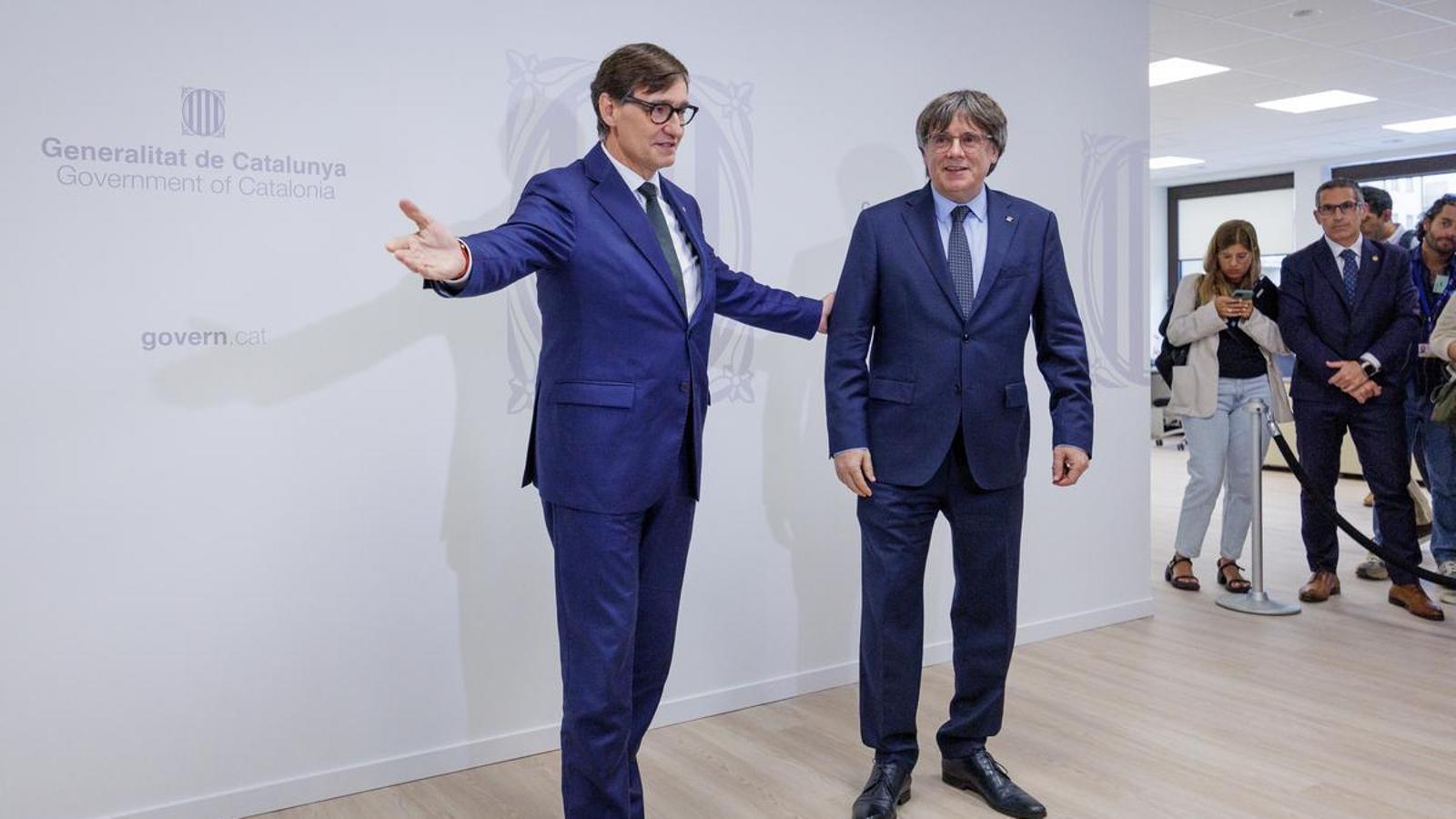The countdown to Puigdemont's amnesty


MadridThe Constitutional Court (CC) will hold a plenary session this coming week in which it will decide on whether to admit Carles Puigdemont's appeal for protection against the non-application of the amnesty by Supreme Court judge Pablo Llarena. In the request, the Junts leader includes a request, as a precautionary measure, for the CC to order the judge to lift the current arrest warrant on Spanish soil.
In the corridors of the court, it is practically taken for granted that the judges of the judicial authority will not grant this request because it would imply advancing a ruling on the merits of the case. It is also anticipated that the Constitutional Court wants to wait before issuing a ruling on the recommendations made by the Court of Justice of the European Union (CJEU) on the application of the amnesty law to the crime of embezzlement, in response to the preliminary questions raised by the Court of Auditors and the High Court of Justice of Catalonia. The Advocate General of the CJEU is expected to issue a ruling in the coming weeks, with the final opinion expected in the fall.
What the Luxembourg court says is important because it could guide both the Constitutional Court—which is so challenged by the right that if it accompanies its endorsement of Puigdemont with a favorable ruling from the CJEU, it will gain legitimacy—and the Supreme Court. The sources at the high court who are most opposed to granting Puigdemont an amnesty warn that the court itself will have to interpret what the CJEU says, and they predict that Luxembourg's conclusions may not be clear-cut and clear-sighted. That is to say, there could be a kind of disobedience of the Supreme Court at the CJEU. Other sources believe that a hypothetical ruling by the Constitutional Court and the CJEU in favor of amnesty would leave Llarena no choice but to lift the arrest warrant against the former Catalan president and facilitate his return.
Will this then be the time for a Sánchez-Puigdemont photo in the Moncloa Palace? The Spanish government is not speculating on the date or location, pending judicial developments. Will Junts' incentives to support the Spanish government disappear? resignation of Jaume Giró, one of the party's pragmatic voices, can give clues. Just in case, Sánchez has already warned that will continue to govern even if he cannot approve the budgets.
This week there were two parties at the Supreme Court. On Friday, the opening ceremony of the judicial year with Felipe VI, and two days earlier, the inauguration of the presidents of the Second and Third Chambers of the Supreme Court, Andrés Martínez Arrieta and Pablo Lucas, respectively. The cocktail party was much more generous on Wednesday and even included vegan and gluten-free options.
On Wednesday, the Valencian president, Carlos Mazón, called—in Spanish—for the resignation of the Foreign Minister to demand the official status of Catalan in Europe, rather than Valencian. Is it known that the People's Party (PP) rejects the unity of the language... or not everyone? MEP Esteban González Pons, who speaks Valencian, let the Abbot of Montserrat know that he wanted to thank him, in Catalan, for his visit to Brussels on Tuesday.
